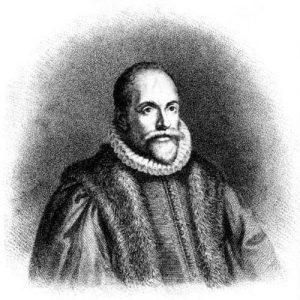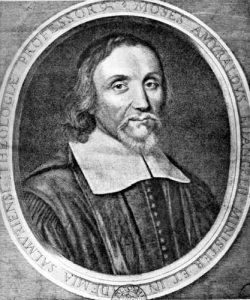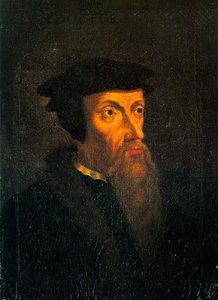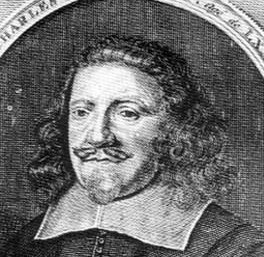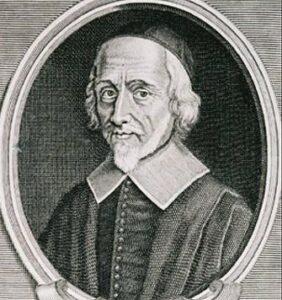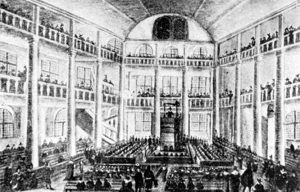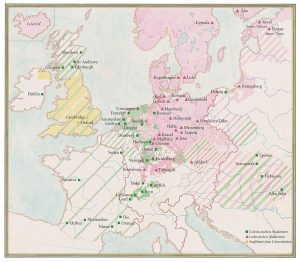Arminius versus Gomar
How could one reconcile the doctrine of predestination and the teachings of the Scriptures, according to which God’s love could save all men ? How could man’s freewill and the “overwhelming” nature of the Divine Grace be reconciled ? Can non-Christians be saved ?
Those were the issues that concerned Reformed theologians the seventeenth century.
Calvin defined double predestination as follows : “We call predestination the everlasting power of the Lord, according to which He determines what He wants to do with each person ; because He does not create them all the same, but grants to some eternal life, to others eternal damnation. So, in accordance with the end for which they are created, we can say man is predestined for death or eternal life” (Inst. III, XXI, 5).
The dispute started in the Netherlands between Arminius and Gomar, who were both professors at the University in Leyde. Jacob Arminius (1560-1609) defended the idea that God had decided to save all men. But salvation was only possible for believers. Arminius insisted on man’s freedom that could overcome God’s grace.
François Gomar (1565-1641) shared the same views as Théodore de Bèze : God has always chosen, right from the start, even before the fall, those who will be saved and those who will be lost.
The Synod in Dordrecht (1618-1619)
The dispute was settled at the Dordrecht Synod, which gathered 65 Dutch pastors and lay people and 28 foreign delegates from Great-Britain, the Palatinate region of Germany, Hess, Switzerland, and Geneva. The French delegates, André Rivet and Pierre du Moulin, were forbidden to attend by Louis XIII and did not go.
The Dordrecht Synod rejected the views of Arminius who thought that the effectiveness of God’s grace depended on man’s response (positive or negative) and that the grace given to the elect could be lost.
In the month following the end of the synod, the supporters of Arminius (called “Arminiens”) had to leave the United Provinces. The “Grand Pensionary”, Oldenbarmevelt, who supported the “Arminiens” was sentenced to death and beheaded in May 1619.
The decisions made by the Dordrecht Synod were ratified in France in 1620 at the National Synod in Alès.
Moyse Amyraut at the Academy of Saumur
The dispute resumed in France amongst the theology professors at the Saumur Academy. This Academy was founded by Duplessis-Mornay and recruited prestigious, open-minded scholars, from both France and abroad.
Moyse Amyraut (1596-1664), a disciple of John Cameron’s, tried to reconcile the views of Arminius and Gomar. He believed that God wants to save everybody but actually only saves believers. For him, one has to have faith in Christ in order to be saved. Amyraut did not blame God for giving up on the condemned. Indeed, God only leaves the sceptics alone. God chooses men according to their faith and not their good works. So, those who are convinced of their own religious faith can have the certainty that they are chosen.
Pierre du Moulin (1568-1658), professor at the Sedan Academy, opposed Moyse Amyraut and supported a strictly Calvinist position : God only wants to save those who have been chosen.
The Provincial and National Synods raised this question several times. In 1637, the Alençon Synod proved Amyraut right but, in 1644, he had, once again, to account for his views at the Charenton Synod.
The quarrel gradually calmed down. The ideas supported by Moyse Amyraut spread among the students in Saumur and further a-field.

